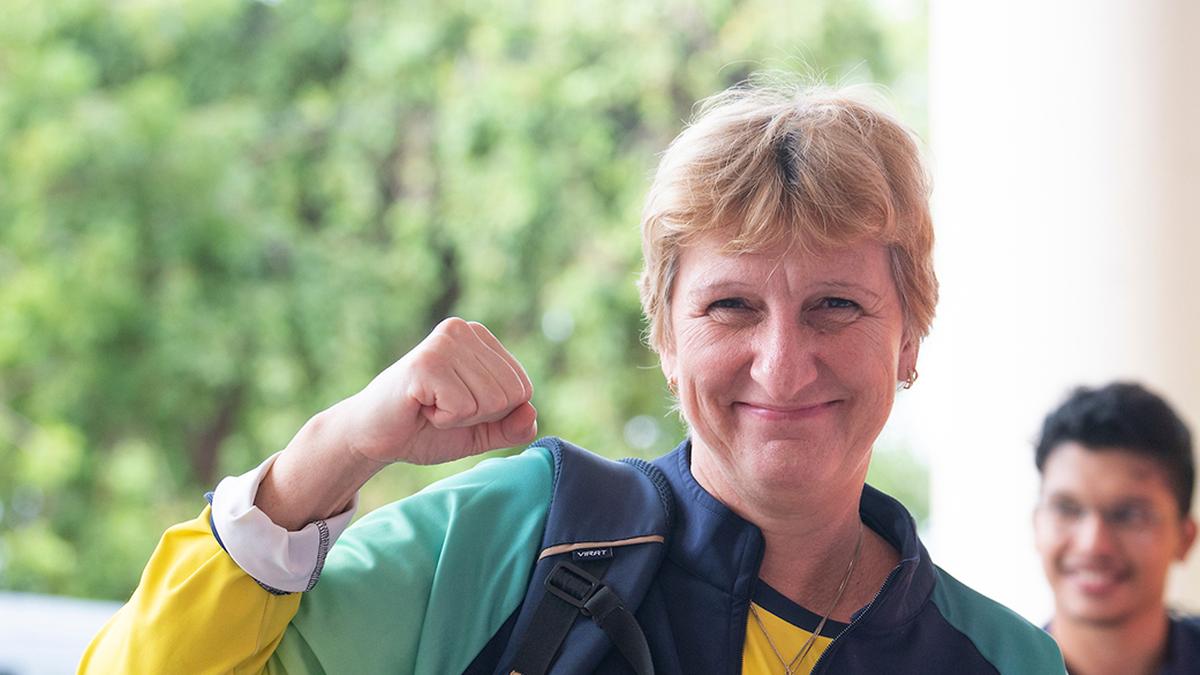
Elena Timina Interview | I believe ‘together we are stronger than we are alone’ Premium
The Hindu
Elena Timina, experienced UTT coach, shares insights on Indian table tennis growth, coaching philosophy, and future challenges.
She is up there — in terms of age, experience and wisdom — of all the coaches that were involved in the Ultimate Table Tennis’ (UTT’s) 2024 edition. Born in the erstwhile Soviet Union in 1969, Elena Timina, a defensive player turned aggressive coach, has represented USSR and Netherlands – her home for well over a decade – and has been coaching various teams for a long time.
Having been involved in each of UTT’s five editions so far, Timina revealed her magic mantra for being a successful coach. Moreover, she served a word of caution to India’s women’s table tennis fraternity and also had a word of advice for maintaining the recent surge in performances in the international arena. Excerpts:
The biggest difference is the level of Indian players. They have taken significant steps in the development of this league in five – actually more years because of course COVID was in between – so it was like seven years, I think, since the league started. In the first season in 2017, most of the Indian players were like underdogs. Now, they are sometimes more dangerous than international players and the results of Indian table tennis internationally speaks for itself. It’s just very big steps.
OK, this is easy for me because I know exactly what I want. Every season I want the same. I want the team and me and the management to really enjoy ourselves and as a team. At the time of the annual player draft, I always pay attention to the character of players, not only the level of their skills. The characters have to fit together. Some human beings take things more seriously, some are a little bit lighter, so I want to have a balance in the team just for this purpose. I want us to be very happy and to become a family for these 25 days. Yes, it’s disappointing to lose in the semifinals but our team had already reached the happiness goal even before we topped the league stage. We really had a fantastic time. We were a small family.
Obviously the second goal was to get as far as possible. I think reaching the semifinal this year was much more difficult than to do it in all other seasons just because there were more teams.
No, I am totally not surprised because the best Indian players – like Manika (Batra) and Sreeja (Akula) - have produced the best results. These players have mastered the specialised material (the long-pimpled rubbers primarily on their backhand and the art of twiddling it), so this is quite clear. They have exploited the advantage to perfection.
If I were responsible for Indian table tennis, the only thing I would worry about is the excessive usage of the rubber. If you see all the girls are playing table tennis in India – professional, semi-professional or little young players – maybe 80% are learning only this style of the game. In my experience, table tennis is very adaptive, so sooner or later, I will give it another 8-10 years maybe - everybody will be able to play against this difficult material and that is the danger.


















